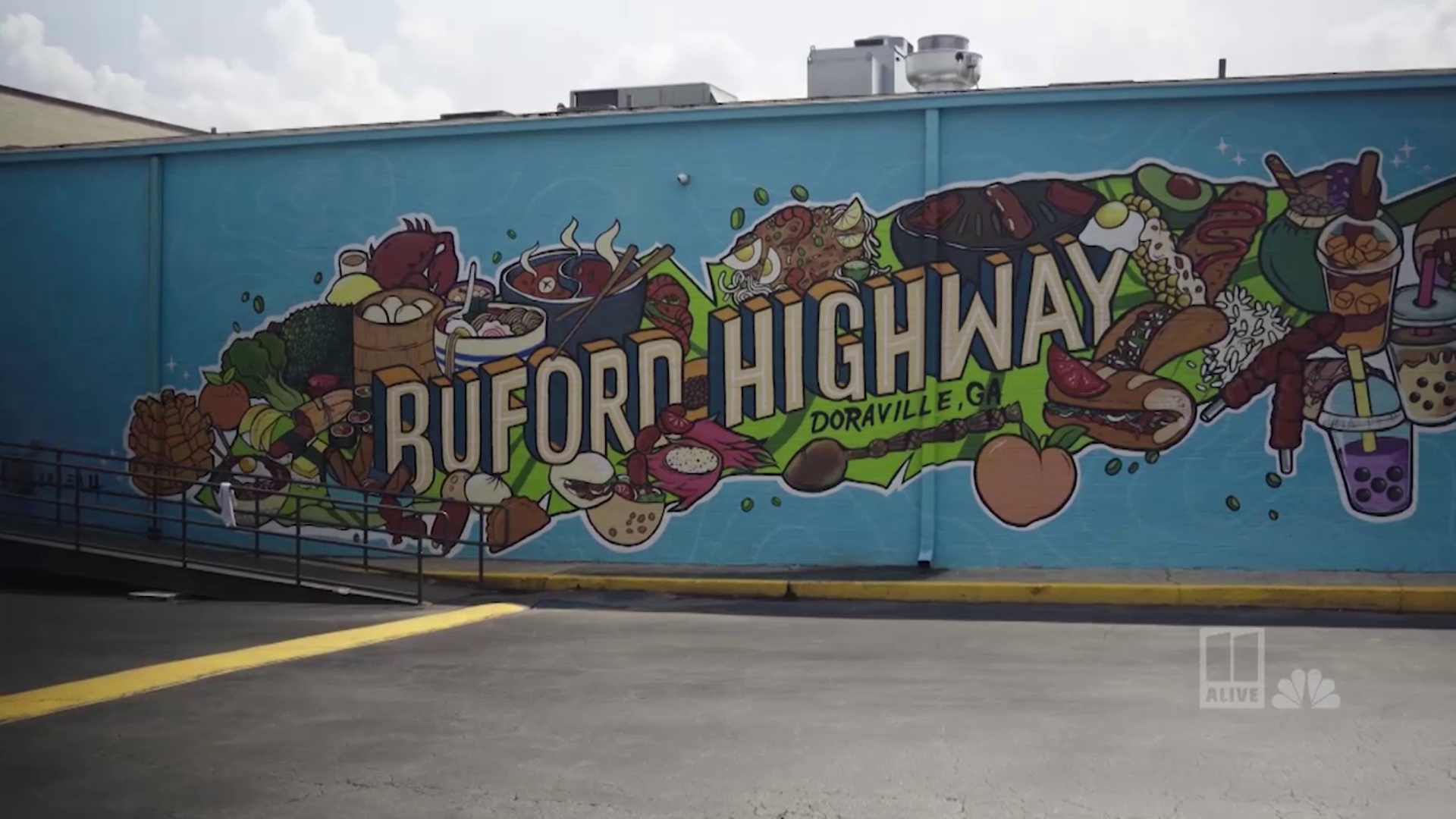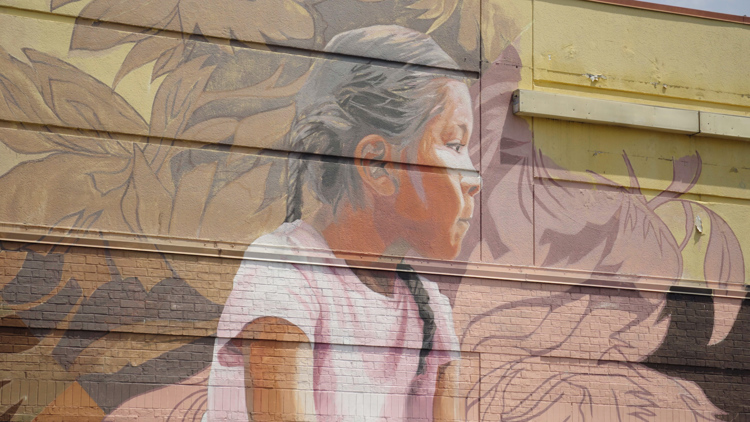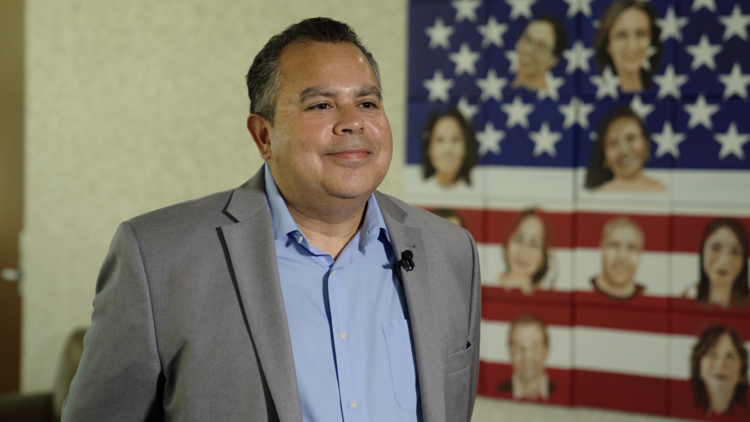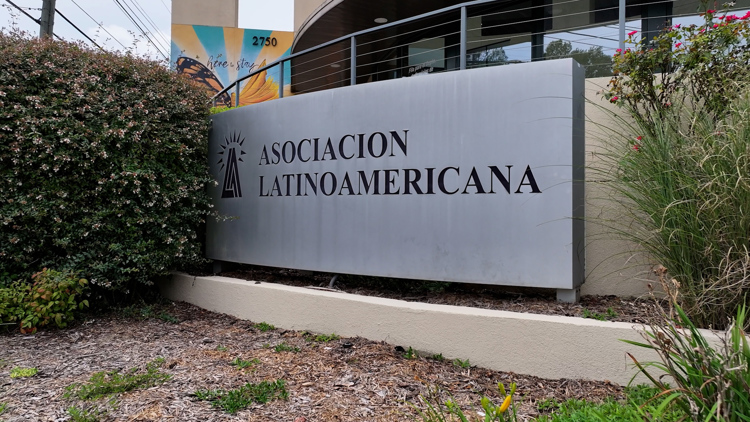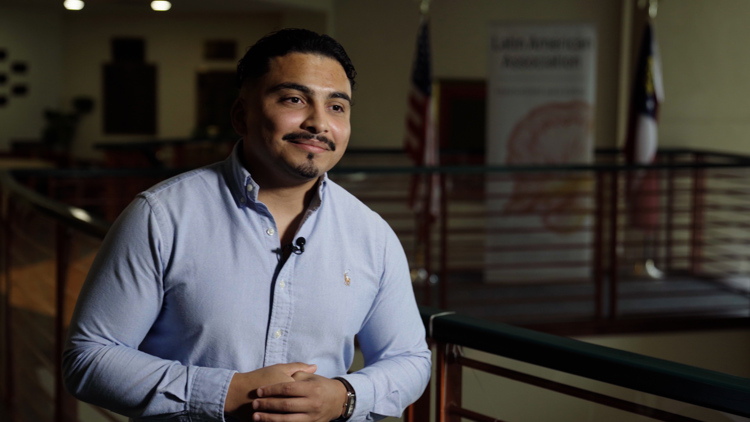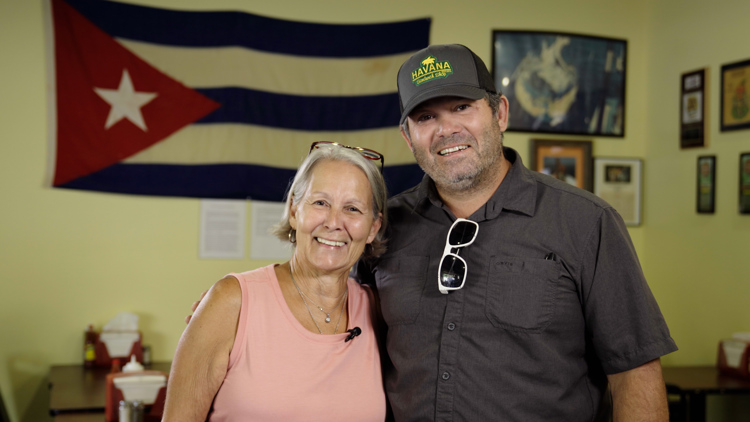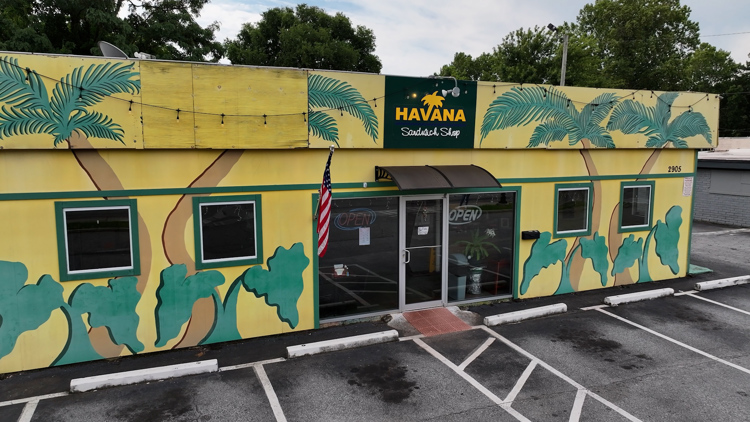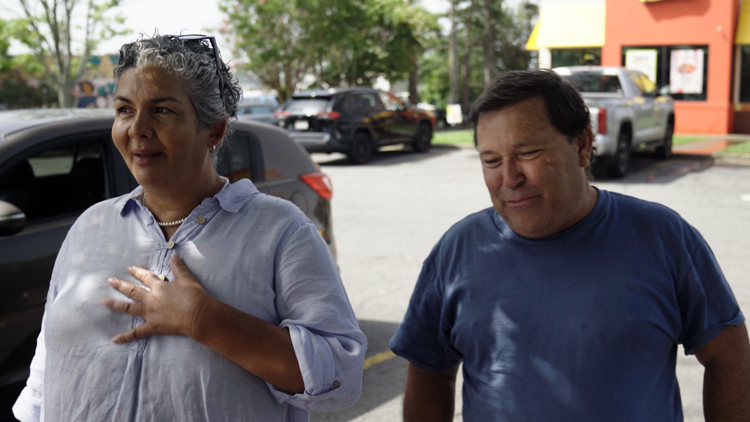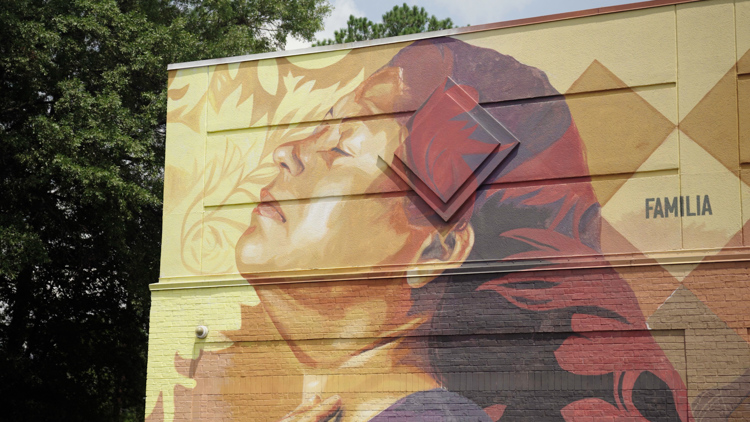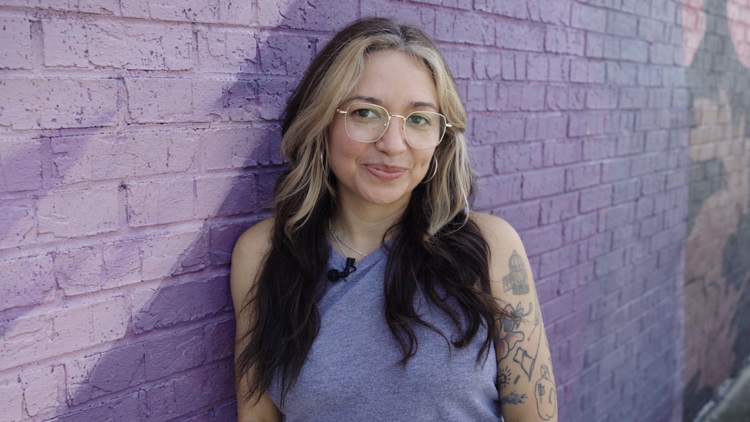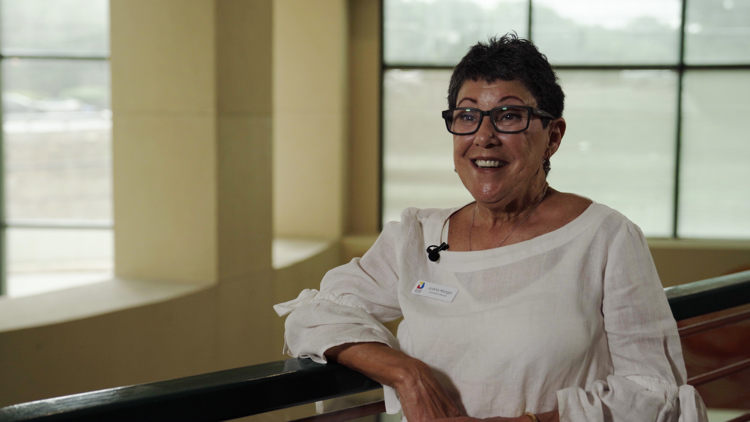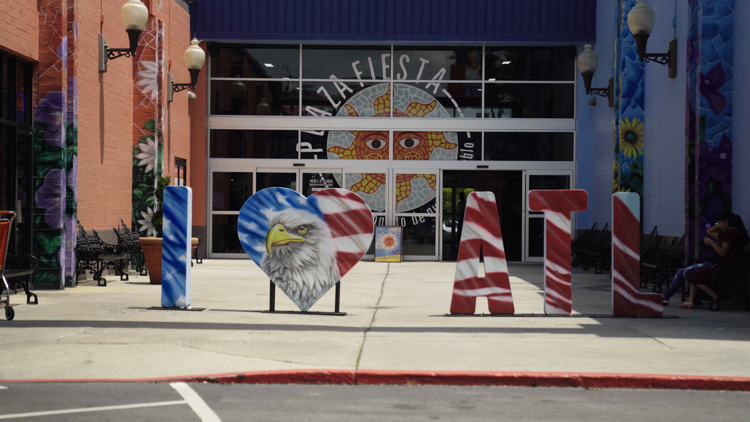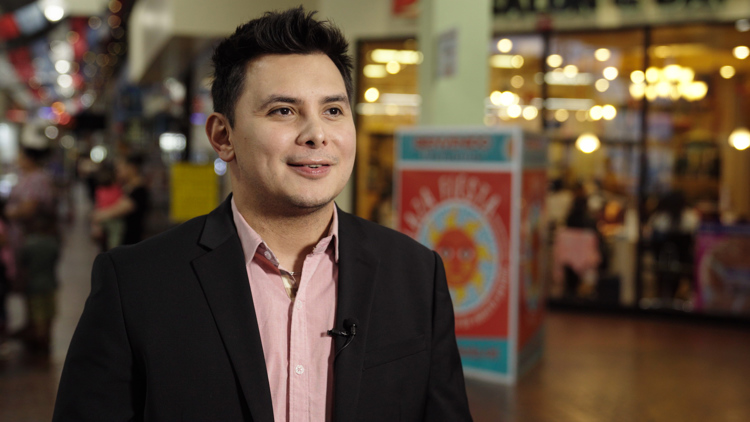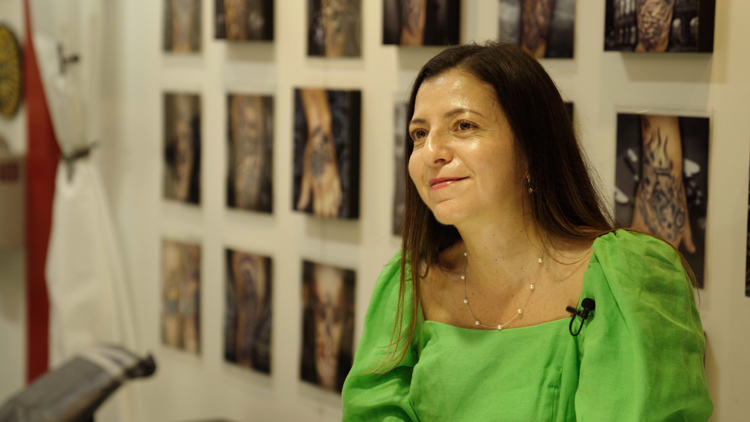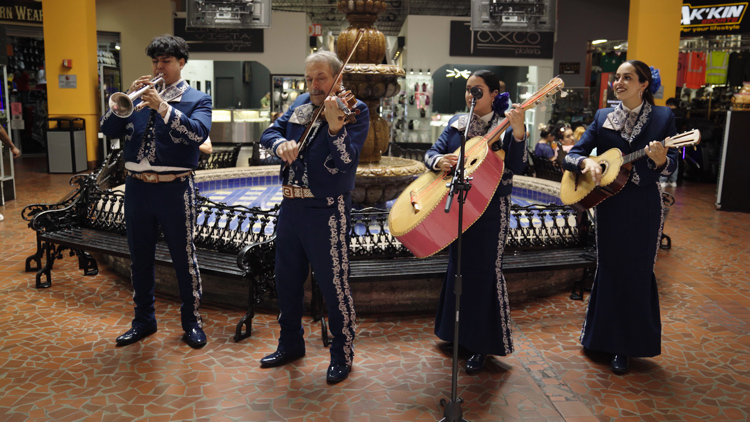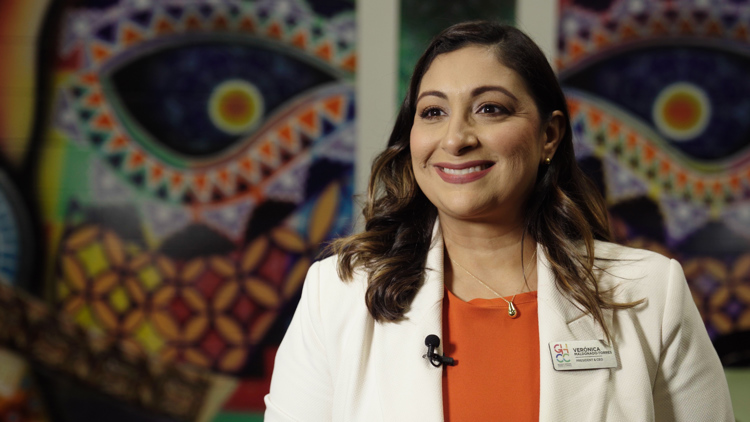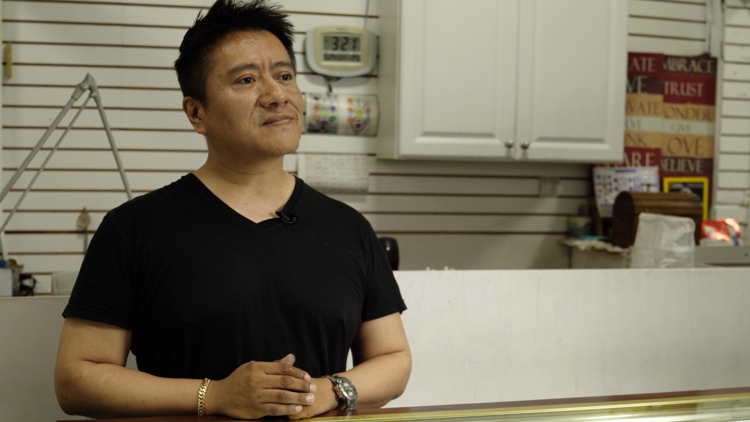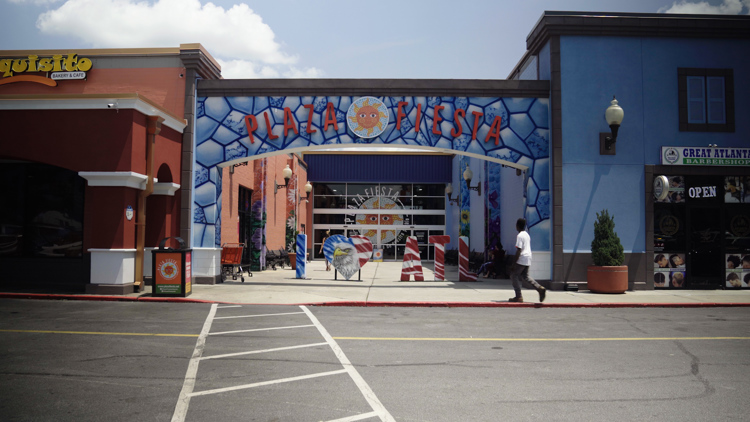'Built on Buford Highway' explores Hispanic community along metro Atlanta's cultural corridor
Metro Atlanta's Buford Highway is known as a multicultural hot spot. This special focuses on the vibrant and growing Latinx community.
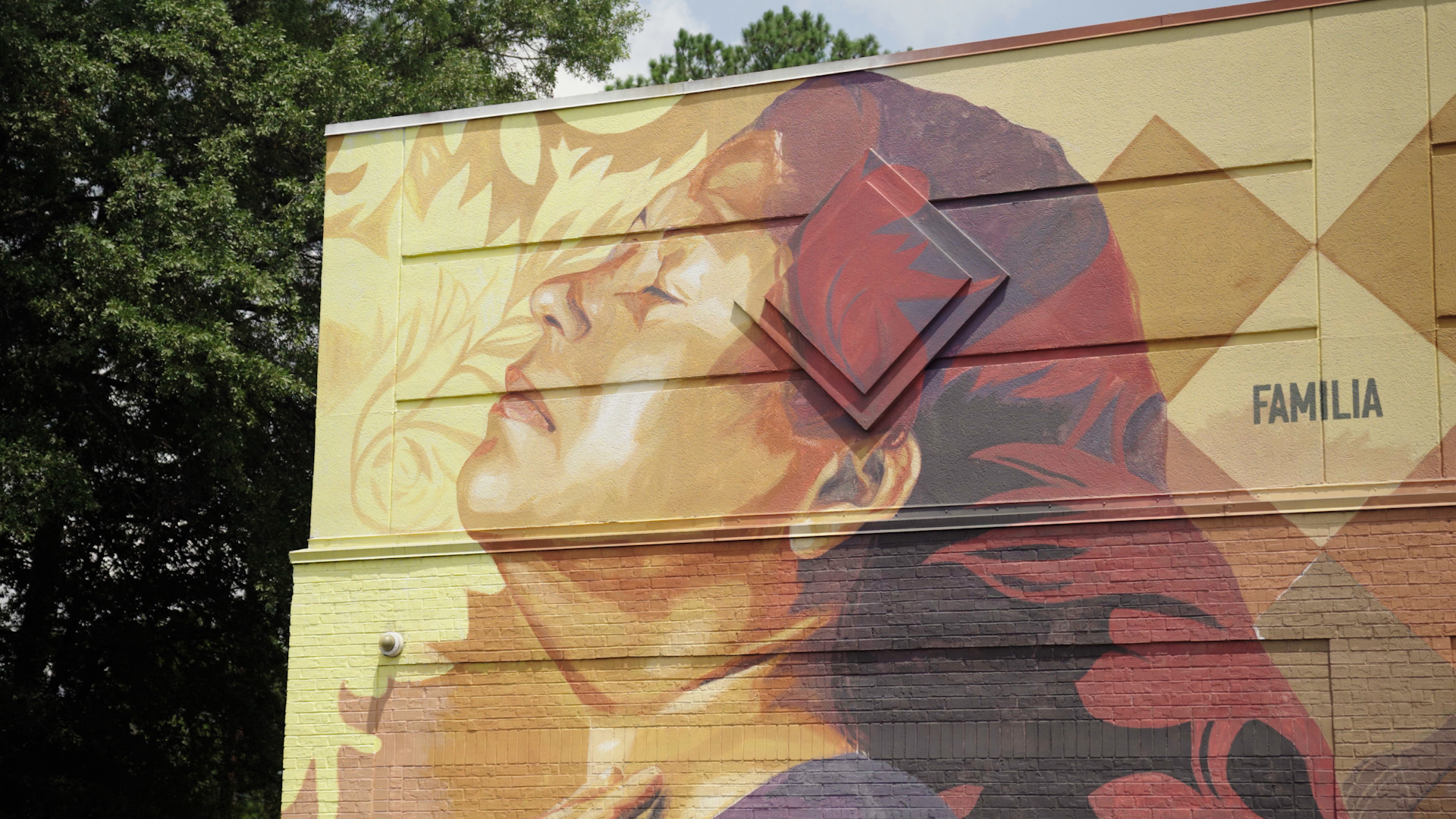
Metro Atlanta's Buford Highway is a magnet for multiculturalism, well-known for it's colorful and diverse eats and home to international goods tough to find anywhere else.
But it's the people that help bring the metro's cultural corridor to life; its vibrant Hispanic community part of its heartbeat.
The 30-mile long highway crosses several counties and cities. The slice of highway that begins near Fulton County is proof of the Hispanic community's impact. One could say that this portion of the community was quite literally "Built on Buford Highway," inspiring the weeks-long project in 11Alive's Voices For Equality Hispanic Heritage special.
This project focused on the growing Hispanic and Latinx community. Continue to read this story to get a more in-depth look at the voices highlighted in the project and resources available to the community. Tune in during the times listed below to watch.
How to watch 'Built on Buford Highway'
On TV
11Alive WXIA
Saturday, Sept. 15 at 11:30 a.m.
Friday, Sept. 27 at 8:30 p.m.
WATL
Saturday, Sept. 14 at 10:30 p.m.
Sunday, Oct. 6 at 7 p.m.
Stream It
Watch 'Built on Buford Highway' on 11Alive+ under our Voices For Equality carousel. Text "plus" to 404-885-7600 to download 11Alive+ and stream 24/7 on Roku, Apple TV and Amazon Fire TV.
You can also watch it on our YouTube channel.
Meet the faces of 'Built on Buford Highway' in the gallery below.
Meet the faces of 'Built on Buford Highway'
Community
Built on Buford Highway: Santiago Marquez
As the Latino community emerged along Buford Highway, the Latin American Association emerged with it. The iconic building has been there for 25 years, but the organization has existed much longer.
"The organization has been around 52 years," CEO Santiago Marquez said. "I always felt that the Latin American Association was the premier organization that serves Latinos."
Marquez has grown with the organization. Born in Cuba and arriving to Atlanta in 1982, Marquez has considered Georgia home ever since.
"I grew up in and around Buford Highway my entire life," he said, "went to Cross Keys High School, dated and married my high school sweetheart. I used to take the 39 bus to go meet her."
Marquez, who now heads the organization, was first with the LAA in 2000 as it launched a housing department. Mentored and nurtured by the CEO at the time, Marquez knew he wanted to come back to serve.
"I can honestly say that I'm in my dream job," he said, "I'm loving every minute of what we do."
And the LAA does a lot.
According to a 2022 report, the LAA's services impacted nearly 50,000 people for that year. Since 1972 it has become "the region's leading agency representing Georgia's Latino issues" with a focus on direct services that helps Latino individuals assimilate and become contributing members of the community.
From health and nutrition services, entrepreneurship programs, upskill job trainings and family well-being, there are a multitude of classes, outreach and initiatives the LAA plans. While 11Alive received a tour of the building, people consistently sought out services and were guided to areas to find resources.
"I'm proud of the fact that I think our community thinks of the LAA as their home, the place that they come to and get anything that they need or anything that they want," he said.
For Marquez, this work is personal.

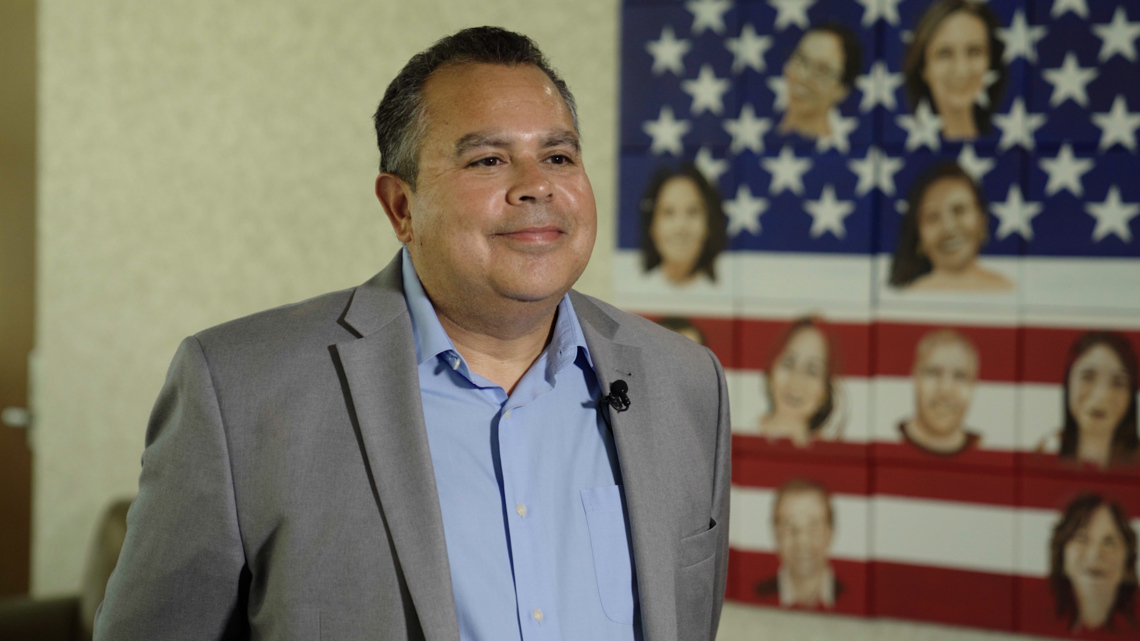
"I think the values that my family and my mother and my faith instilled in me is to give back," he said. "And I always felt that even though I was an immigrant, even though we were poor, we were very lucky because we made it out of Cuba. We made it here. By the time I was 8, I was an American citizen. I've never had to deal with the things that some of our community has to deal with legal status, not having a status, living in the shadows."
He keeps this at the forefront as he considers what's facing the community.
"I think that Buford Highway, at least this side of the highway, is defined by the Latino community," Marquez said. "They have built their businesses here. They have built their lives here."
To Marquez, the community that Hispanic and Latino families have built along this corridor is being pushed out.
"The lack of transportation and mobility becomes a big issue," he said as much of the community has relocated to the suburbs of Gwinnett County. "I think the affordability piece here is the biggest threat to the Latino community and perhaps what's coming in the future in terms of Buford Highway being redeveloped."
However, Marquez has hope, knowing that this community is resilient.
"We all have our stories of how we got here. And I don't think any of those stories are easy," he said. "I think that just builds up your toughness and resilience."
Resilience, Luis Andino says is instilled in the culture.
Built on Buford Highway: Luis Andino
Andino, at the time serving as the managing director youth services, firmly believes that the LAA can change lives. He's experienced it firsthand.
"My parents emigrated from Honduras and came here to Atlanta because there was a lot of job opportunities because of the '96 Olympics," he explained. "(I) was basically born and raised on the street (of Buford Highway)."
All the shopping, church gatherings and community was along Buford Highway, he explained, which gave his family a sense of comfort.
"You didn't feel like an outsider. You know, everyone here spoke Spanish," he said. "The school that I went to, everything was typically English. So you were kind of outed sometimes because you didn't speak the way that they spoke or dress the way that they dress, or because you bring tortillas to lunch rather than, you know, peanut butter jelly sandwiches."
Though he describes growing up in the area as a wonderful experience, he said there tumultuous times.
"I remember growing up where people would be working in a space without documentation and then ICE raids would happen," he said, "or la migra."
Though not the case for his parents, he remembers family members lived in fear, afraid to leave their homes and the bustling corridor feeling emptier and quieter.
"When you have enough of those being targeted on the street, people will fear and just live in fear for a very long time," he said.
It was a trip to the laundromat where his mother saw an ad about youth programs at the LAA. He was in the sixth grade when he was enrolled.
"I didn't know what was happening at the time, but really they were tricking me into higher education," he said, "planting those seeds that would later flourish in a couple of years."

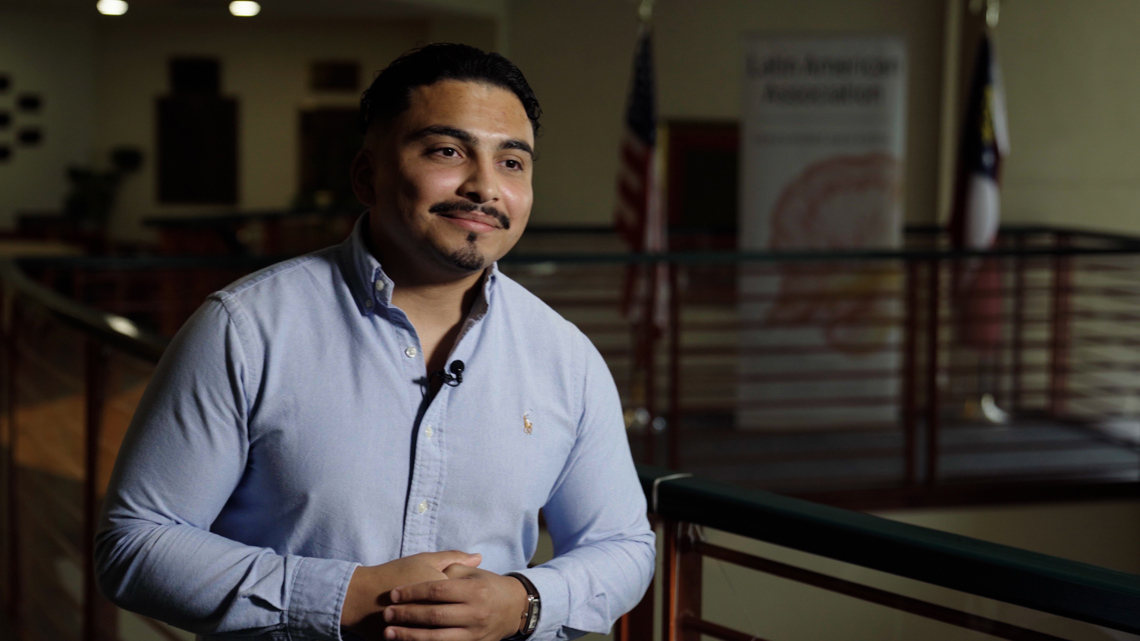
Andino first considered law enforcement and later found himself in the classroom and working with students. Eventually, he was offered the opportunity to contribute to programs at the LAA before eventually leading the division himself.
"I remember one of the first things that I did was actually walk into the auditoriums that are right here in this building because I hadn't been here in so long," he chuckled.
He calls it a full circle moment, being raised along Buford Highway and now giving back.
"Our community here is very vibrant, very passionate," he said, adding that young Latinos have so much potential to help progress the community forward. "You know, the LAA tries to bridge the gap in many ways."
This has taken shape with a virtual series called Pathway 2 College, a summer program, college and career advising, and The Latino Youth Leadership Conference.
"I think it's our responsibility as those that have already climbed that mountain to actually light the way so they can go ahead and have an easier path," he explained. "My parents didn't cross the desert and a river in another desert for me to just sit on my butt."
Andino said the younger generation is intent on not taking their opportunities for granted.
"We have gotten to the point now where we're almost first, second, or even third generation of Latinos in this community that are stepping up and having representation," he said," starting to see a lot more of homegrown product representing and protecting this community."
To Andino, it's because he was nurtured into the leader he is today. That's why he continues to pour back into his community.
"I really am a product of all the people that helped raise me in and around this street," he said. "I'm built on Buford Highway."

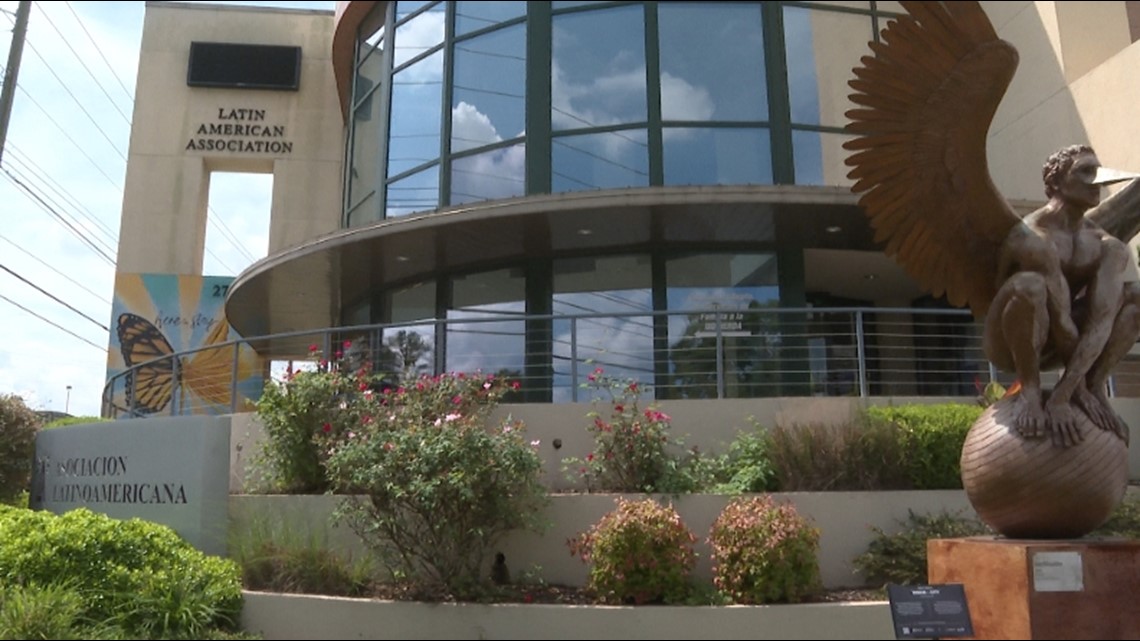
Resources at the LAA
Family
Down the road from the LAA and across Buford Highway is Havana Sandwich Shop, one of the more well-known Cuban restaurants in the area.
The shop opened in 1976 and is often lauded as the first ethnic restaurant on this side of the corridor. Stepping into the shop, there's an immediate sense of family and its walls carry memorabilia that tell a love story.
"When I met Eddie, he introduced me to Cuban food, what his mom cooked and dad cooked," Debbie Benedit, co-founder of Havana Sandwich Shop said.
Debbie said from the first day she met Eddie, she knew she was going to marry him. She was 17 years old at the time.
"He continues to this day to be the love of my life," she said. "Eddie had a dream and this was his dream, the restaurant."
Havana Sandwich Shop was originally a shut down convenience store, Debbie explained. In less than six weeks, the couple turned "an empty rundown building to pretty much what you see here today."
They didn't do it alone.

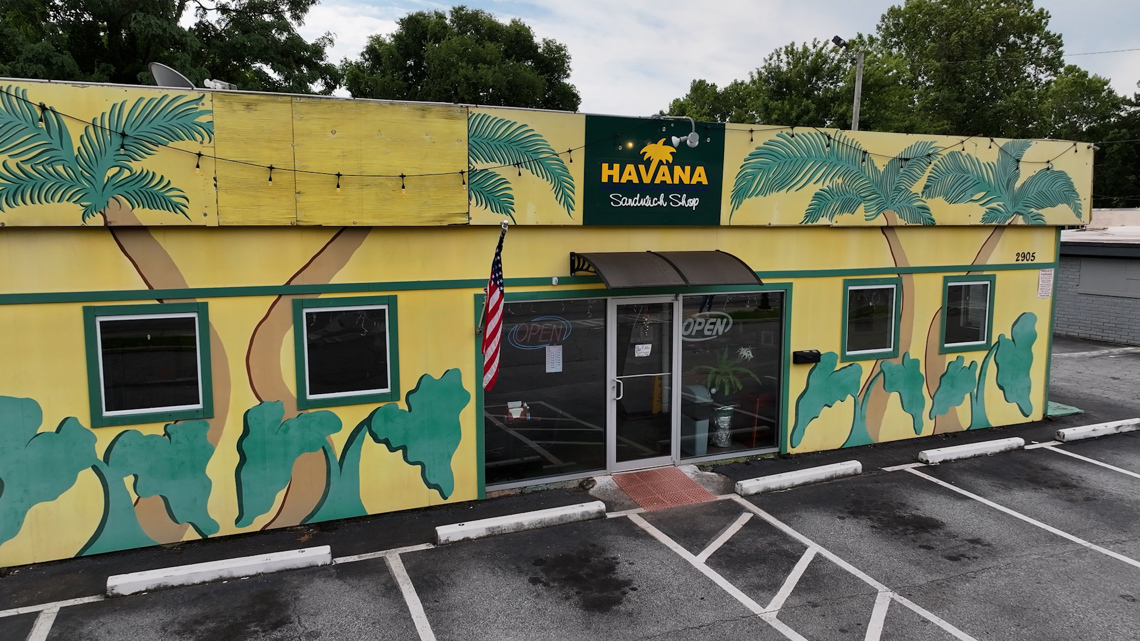
Eddie's parents, Guido and Felisa (Estrella), were part of the blueprint. Affectionately known as Mami and Papi, the two helped bring the Cuban flavor to Atlanta.
"We had no idea what we were doing, we really didn't," Debbie laughed. "But we started with the basics, which was the Cuban sandwich. We found a vendor, which to this day we still use."
Debbie described dancing in the dining area and memories of the family trying to make its own mojo. Debbie and her husband had four children, and all of them grew up inside the restaurant. Now Eddie Jr. helps with more of the day-to-day operations.

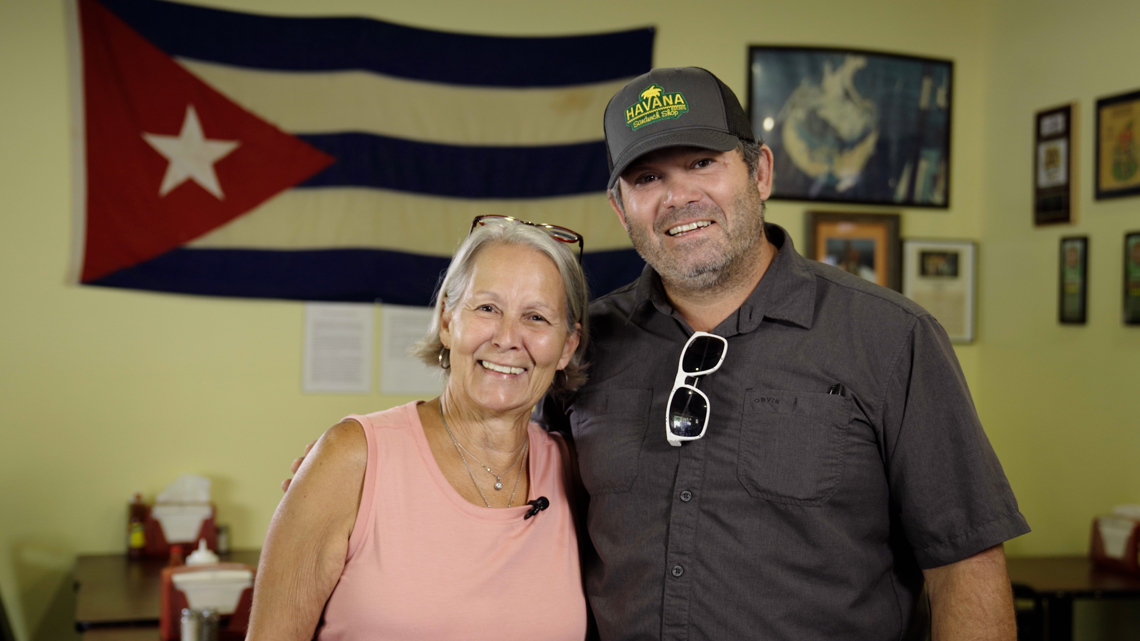
The Benedit's family history is all along the walls, with mementos of Eddie's parents hanging above "their table" where they often shared their meals. There's also a worn Cuban flag that carries a piece of history often found in a museum.
"Back in 1980, y'all know about the Mariel Boatlift," she explained. "Well that's where the Miss Lucky comes in."
The boatlift was a mass emigration of Cubans who traveled from the island's Mariel Harbor to the U.S. A friend approached Eddie to ask him to help captain a rescue mission with his boat, the Miss Lucky, Debbie said.
"So he went and this flag flew on the back of the Miss Lucky," Debbie said. A boat that could fit around 10 people carried back nearly 30, she explained. Some of Eddie's family and other Cubans were able to seek refuge in the U.S.
"I like to display it because it means a lot. That's where they immigrated from. That was their home," she said.
Eddie's family had to rebuild their lives in Atlanta; and after a fire Havana Sandwich Shop had to be rebuilt too. Debbie said it's all made them stronger, making the mementos and staff that have stuck by their side over the decades that much more special.
Debbie, remembering her in-laws and her husband, said their spirits are still felt throughout the restaurant.
"My father in-law loved to sing," she said. "He'd say 'I love this country. America's been very, very, good to me.' and break into America The Beautiful or Star Spangled banner. It's part of the reason why we always keep music on."
She shared how her mother-in-law was more reserved but a welcoming force. Her husband, a jokester.
"He was diagnosed with a very rare form of liver cancer," she said, "but even up to the end, it was very positive. We worked hard. We had a lot of fun. And I've enjoyed every minute."
Emigration
When 11Alive producer Gabriella Nunez and photojournalist Mike Nicolas went to speak with community members, many expressed concern of speaking on camera for fear of jeopardizing their status. Undocumented immigrants, individuals on visas and others under temporary protected status shared how Buford Highway has been a refuge for them. Mothers, new arrivals, and families who have lived along the highway for years spoke of the ease to find community but mentioned many people were moving toward Gwinnett County's Norcross and Lawrenceville as it has become more expensive to live closer to Atlanta.
Taxi drivers often hangout near Northeast Plaza, waiting for their next gig. We're not talking about Ubers or Lyfts, but other services primarily seen in the parking lots of plaza and grocery stores.
Parked near the ATM not far from Pollo Campero was Eddy Delgado. When asked what makes Buford Highway so special he said it's the ease in finding opportunity and the language. Eddy's conversation has been translated from Spanish.
Arriving in September 2018 with his two children from Venezuela, he said he came to join his wife.
"She first worked here so we can arrive more comfortably," he said, "she prepared for us."
It's clear Delgado had incredible respect for the sacrifices his wife made, saying coming to a new country alone was hard on him. He could only imagine how hard it was for his beloved wife.
"I wasn't always a taxi driver," he said. "I had another type of job, but when the pandemic came, a lot of jobs were lost."
Though he lives in Gwinnett County he often finds himself along Buford Highway for gigs.
"Here (Buford Highway) is the central point," he said. "Here are a lot of Latinos. The people who aren't Latino learn Spanish. One just adapts." He joked that he's met Chinese and Vietnamese immigrants fluent in Spanish, too.
He left for a gig and promised to come back. About 20 minutes, he parked in his same spot and another car pulled up: his wife.
Delgado was ready for the spotlight with Aury Caldera, shying away from the camera but coaching him through his responses. The humorous scene was insight into their dynamic as a couple.
"She's here telling me what to do but I didn't always have it," he joked, clearly grateful to have her with him. "Talk to my wife," he encouraged, saying she'd be better on camera.

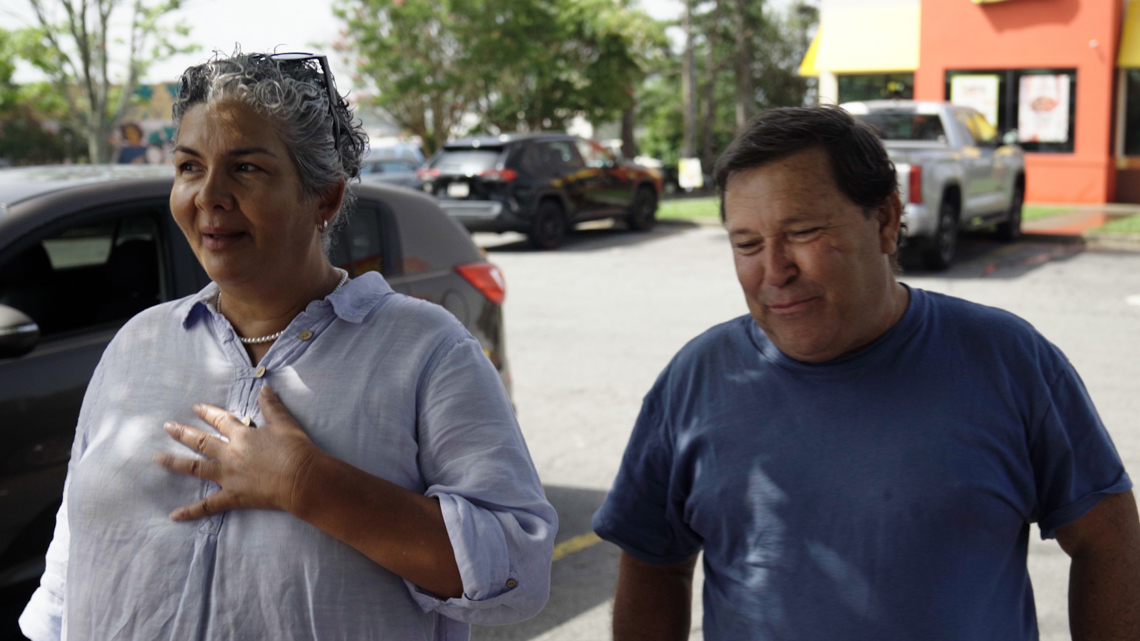
Caldera took us along in her taxi as she waited for her next gig. She and Delgado shared raw emotions about their home country, Venezuela, as it was a day after the country's presidential election. There's been controversy and allegations of foul play over the election.
"Right now, we Venezuelans are very much affected by the same problem that we have in our country," she said.
Caldera explained that their choice to leave Venezuela was when their son was being threatened in school. They felt like his education was in jeopardy and, therefore, their children's futures.
"When we came, like all immigrants, there's a process to get your paperwork in order. The moment I got my license, I became a taxi driver," she said, adding that there are more immigrants "doing good than doing bad."
She starts her days early, usually looking for gigs toward Buford Highway because she knows she's going to end up around there anyway. Through the traffic and perpetual construction, as she describes it, she enjoys listening to music.
"Salsa, merengue, Venezuelan music," she said. "I've learned from my Mexican clients about banda."
Though the taxi service is for anyone, Caldera explained that a majority of her clients are Mexicans, Hondurans, Guatemalans, Nicaraguans, and people from El Salvador.
"I have been blessed with excellent clients," she said. "Sometimes I meet someone, and I say 'wow,' sometimes we're like psychologists listening to people."
She keeps her faith front and center. A rosary hangs from her rearview mirror - the only decoration in her car.
"Every day, I ask God first for health and then to take care of all of my family and people in Venezuela," Caldera said. "That's what I pray for."
When asked why so many Latinos turn to the taxi service rather than Uber or Lyft, she seemed as if the answer was obvious.
"With Uber or Lyft, a lot of drivers speak English," she explained. "I think Uber and Lyft only do one ride, too."
She explained that she'll often stay with a client for several stops, taking a mom to the grocery store, back home, and then to pick up their child from daycare. Some of her days can look like taking someone to work and promising to come back and take them home later.
"Our clients have the ease to say 'stop here, wait for me for 10, 20 minutes,' and we do it. I think that's the biggest difference, that the people can do that."
Caldera expressed that all of her clients are hardworking people trying to make ends meet. She said she wouldn't have driven the taxi service for so many years if she didn't find some joy in it.
"We have an excellent community," she said of Latinos. "There are people who are doing more good than bad."
Preservation
Living Walls
"Familia, and valentia, dignidad," Monica Campana read off a mural along Northeast Plaza.
It's the same location where many of the taxi drivers wait for their next rides and people wait for the MARTA or small yellow bus that serves stops along Buford Highway. The mural, she explained, resembles a mother and daughter whom the artist met at the Latin American Association when conceptualizing the design.
"I mean, these are actual, real, people that live in the community," she said.

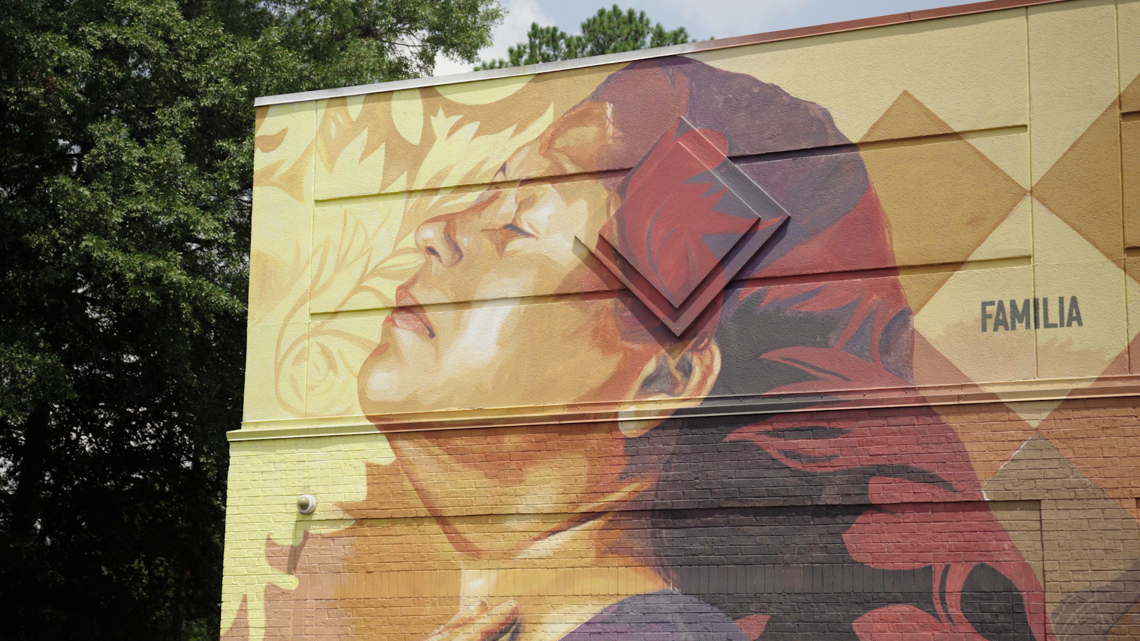
Campana is an artist and the co-founder and executive director of Living Walls. The organization aims to create inclusive, intentional, thought-provoking public art that reflects the community that it's in. Buford Highway was a focus around 2016-2017, with Living Walls behind many of the murals seen along the corridor.
"We really got to get to know the community," she said. "Actually, a lot of this art didn't exist a decade ago."
In the year she spent in the area, she said it was clear: Buford Highway is extremely diverse.
"It's beautiful, it's complex, it's colorful, it's delicious. I think it's a really great representation of what makes this country so special," she said.
The idea to paint murals along Buford Highway came at a time that Campana describes as contentious.
"I mean, this is 2016," she said. "We are now experiencing and seeing a lot of violence toward the immigrant community."
So she wanted to show them love.
"When you get to see yourself represented in this larger scale, it becomes a kind of monument," she said.

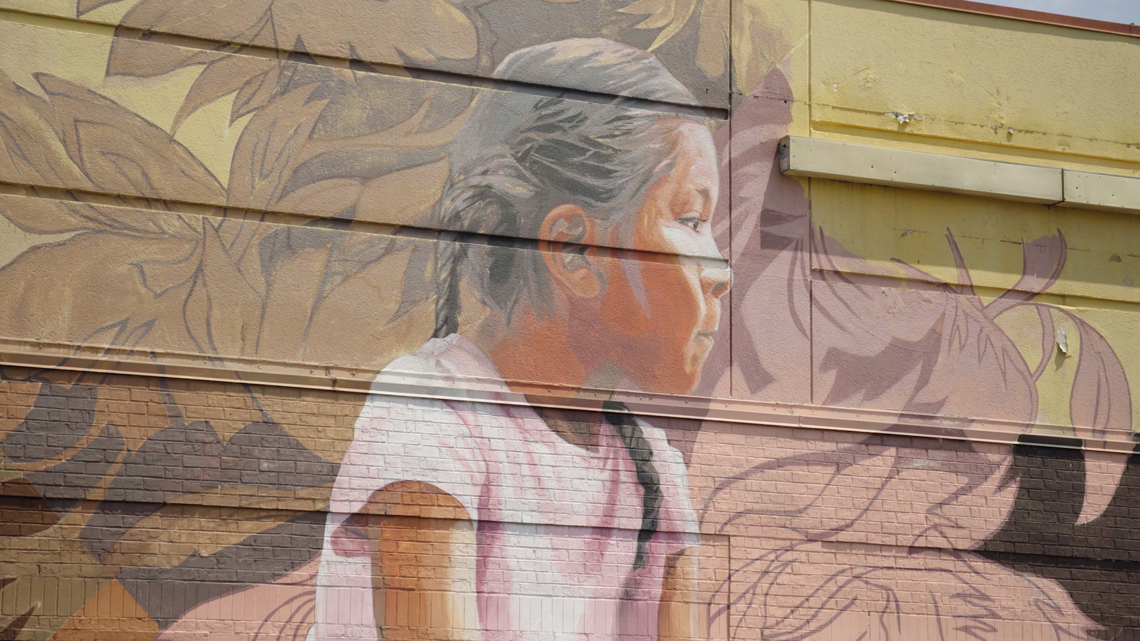
It was a journey of meeting different groups, organizations and neighborhood associations. She rattled off how meetings were planned for different communities from all different countries, not just Latin American ones. Living Walls helped facilitate the conversations, she said, but the artists and the community were the true backbones of each concept. She feels that it is represented across the 12 murals Living Walls painted along the highway.
"We would have people stop and be like, 'yeah, in my country, I would also paint,'" she recalled, describing how community members were allowed to help with the actual murals and not just the concepts. "It was such a good reminder of where we come from and how amazing our ancestors are in our culture."
Campana, originally from Peru, believes Latinxs live and breathe from a very artistic place.
"It's seen in our music, it's seen in the way we dress, it's seen in the colors you see in our countries, it's in the food that we eat," she listed. "It's a part of our life. Even though we may not see it immediately or like think of it as that because it's just so ingrained in our life."
Campana said people need art, it's how she helped find herself when she felt lost in a new country. She and her family moved to the U.S. in 1998.
"I was 15 years old and I hated it," she said. "It was a really weird age to move here and for the first time, I experienced, you know, what it felt to be different."

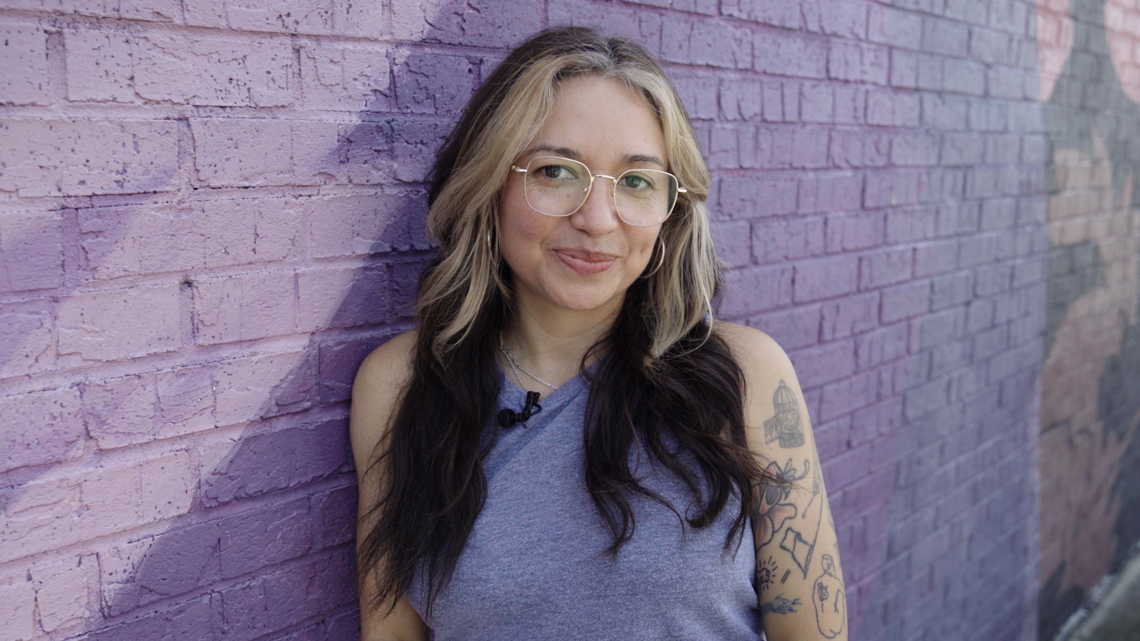
It's an experience that young immigrants face, and she feels it is not talked about enough. Putting landmarks in a place where immigrants like her can see themselves reflected on a mural can make them feel more seen.
"For many years I didn't know how to love myself fully because I had that experience from moving from one place to the other, and art is actually something that pulled me back to who I am," she said. "It taught me to love myself and love where I come from."
She said Atlanta's cultural corridor sort of does the same.
"We don't like really talk so much about how Buford Highway is a safe space for so many families that find themselves now here starting a whole new life, you know, without the language, without the resources, most times without the proper documentation that you need to be able to thrive and succeed in this country," she said.
"And they all find themselves here, you know, and that's really special."
We Love Buford Highway
"Our mission is preservation," Juana Alzaga said.
Alzaga is the director of Buford Highway Orchestra, which functions as an arm of We Love Buford Highway. The organization is aimed at preserving the multicultural identity of Atlanta's beloved cultural corridor.
In the community, Alzaga is known for making noise.
"I was born in Cuba. I've been here since '81 and moved to the Brookhaven area in '83," Alzaga said. "I have brought a lot of good trouble," she laughed, quoting one of her idols Congressman John Lewis.

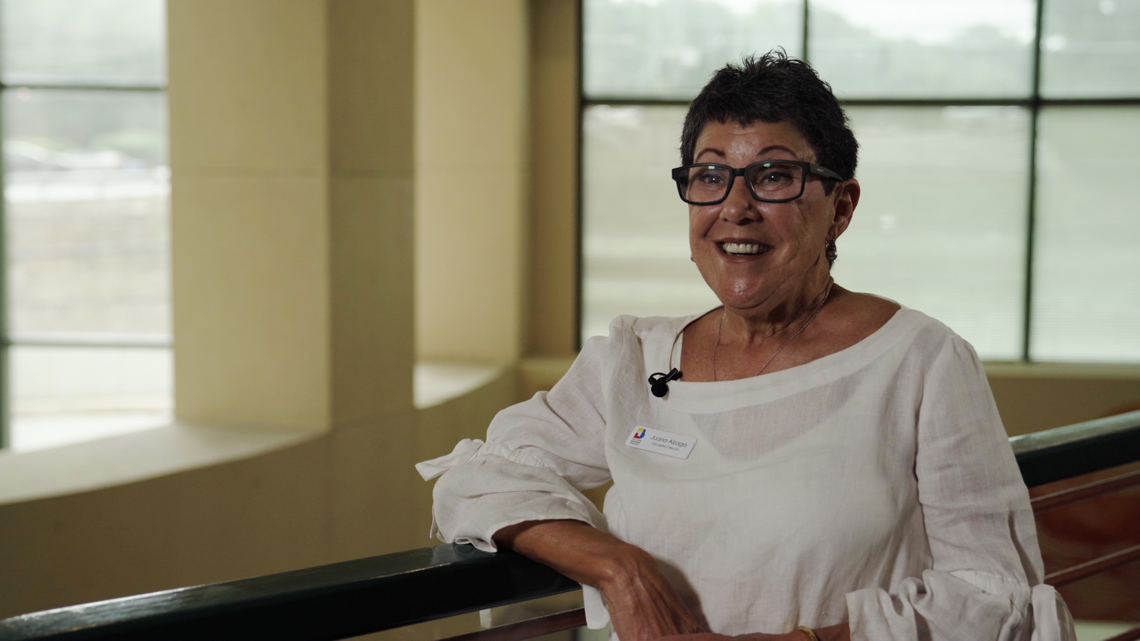
She self-identifies as an education advocate and believes that Buford Highway is at risk of losing its essence.
"Our mission is for us, for people to know what we exist and for people to know the diversity that exists around our Buford Highway," she said. "Creating awareness that if we do the gentrification of this community, (it's) going to be gone and you will never get it back."
Alzaga said for decades, immigrants have always made this corridor their first home. As for the Latino community, she says her people add a different flavor to the melting pot that exists along the highway.
"We're a growing community, now the largest minority here in the United States and people underestimate our legacy," she said.
Her work is powered by the belief that parents in the community need advocates, as many don't speak English. That's why she helped create the orchestra after school program during the coronavirus pandemic. In it's fourth year, it is free, and serves underprivileged students in the area.
Buford Highway, like an orchestra, is created by many walks of life.
"We are not just one people, we are many people," she said. "Buford Highway is a gem because there's nothing like this in the entire Georgia."
Learn more about We Love Buford Highway's programs and efforts of preservation here.
Unity

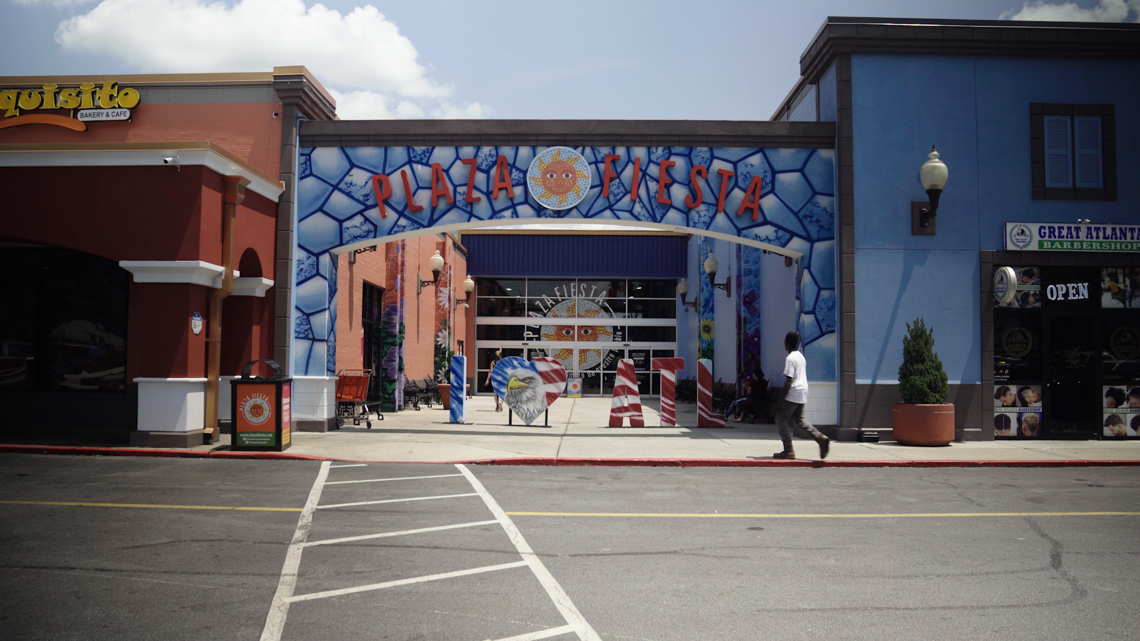
As one travels down Buford Highway, there's a strip mall that always has full parking lots, foot traffic, and is jam-packed with vendors. Plaza Fiesta welcomes visitors from all across the southeast and is the one-stop shop to find quince dresses, leather cowboy boots, and authentic soccer jerseys among other items.
"Places like Plaza Fiesta are spaces for cultural expression," Gio Garcia, the marketing director for the mall said. "When you are inside it's like you are inside of a Latin American street market."
Garcia describes the goods found inside as authentic and culturally relevant to many Hispanics and Latinos.
"The way that we live is represented here," he explained.

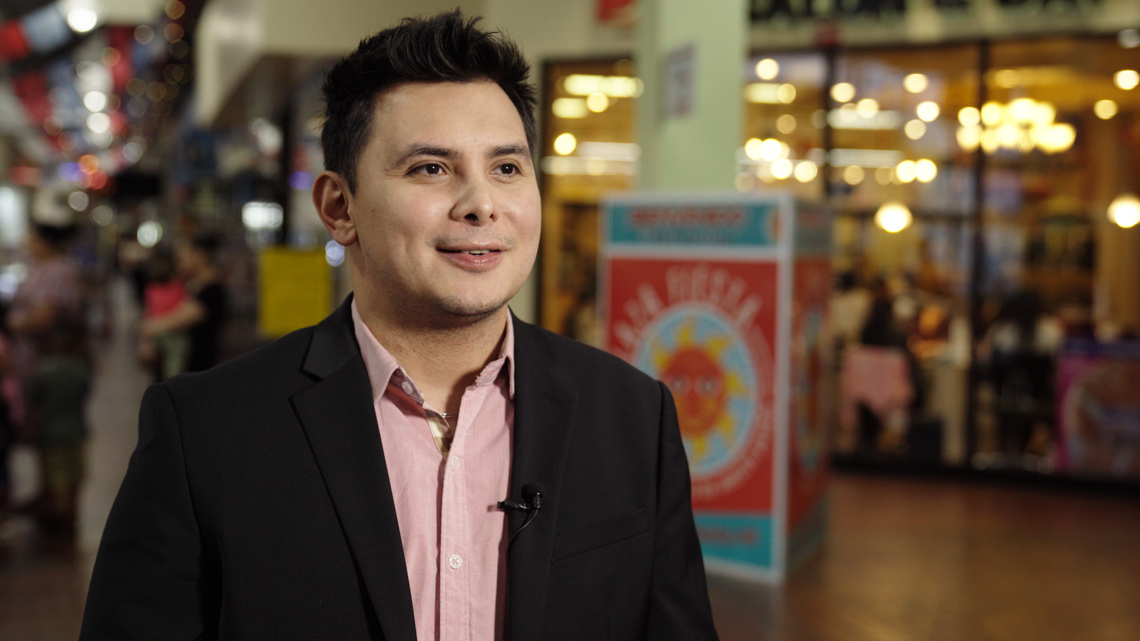
Adriana Gutierrez owns Tattoo Fiesta and has been a presence in Plaza Fiesta for 25 years, ever since the mall opened. She has three locations within the mall and another shop in another city. When asked if she was a tattoo artist she said, "no, I'm a businesswoman."
She said opening several shops in the mall has proven to be a wise business decision.
"It's really important to feel like there are other people similar to us with the same interests in life," she said, explaining that when people shop they find business owners, artists, servers who look like them and can speak the same language.

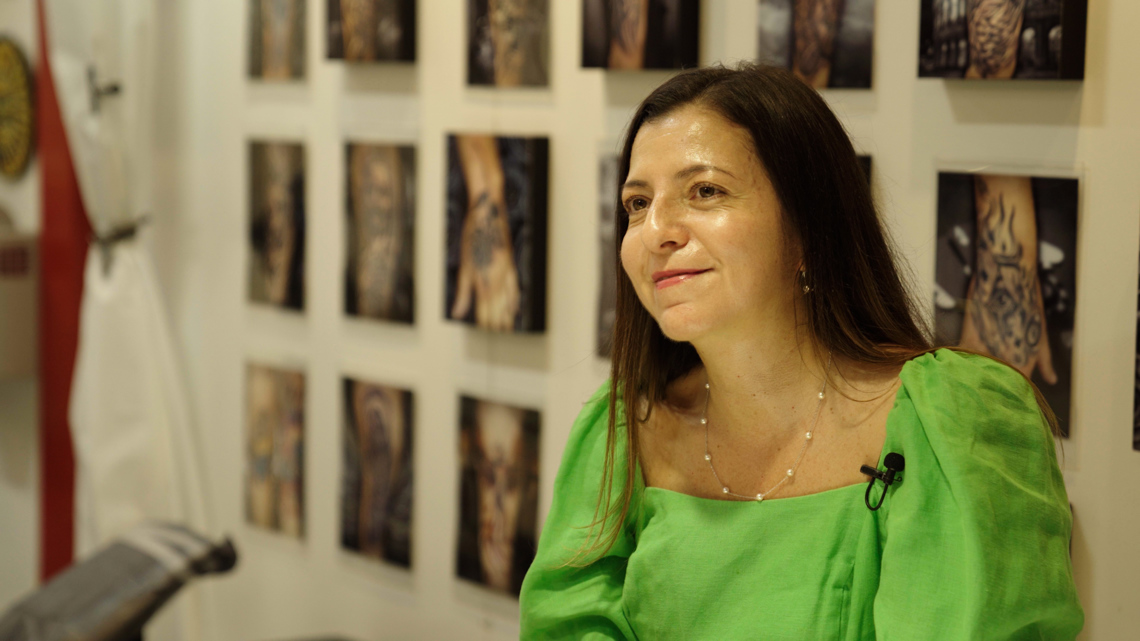
Plaza Fiesta continues to attract the new wave of Latinos, too.
"Even though the new young adults, those between 20-30, they have so many options for different places. They still like to come over here," Victor Lorca, an Ecuadorian jeweler said. He's had his shop in Plaza Fiesta for 12 years and doesn't plan on leaving as long as he can afford his lease.
The Georgia Hispanic Chamber of Commerce said Plaza Fiesta is big business but should be seen as a reminder of how this community is growing.
"I think it is important for our community and any community to find themselves reflected out in the world," Veronica Maldonado-Torres, the president and CEO of GHCC said. "When we leave our countries and decide to come here, and start over again, and build our businesses, and build our families, we always want to find a place where we feel that we belong."

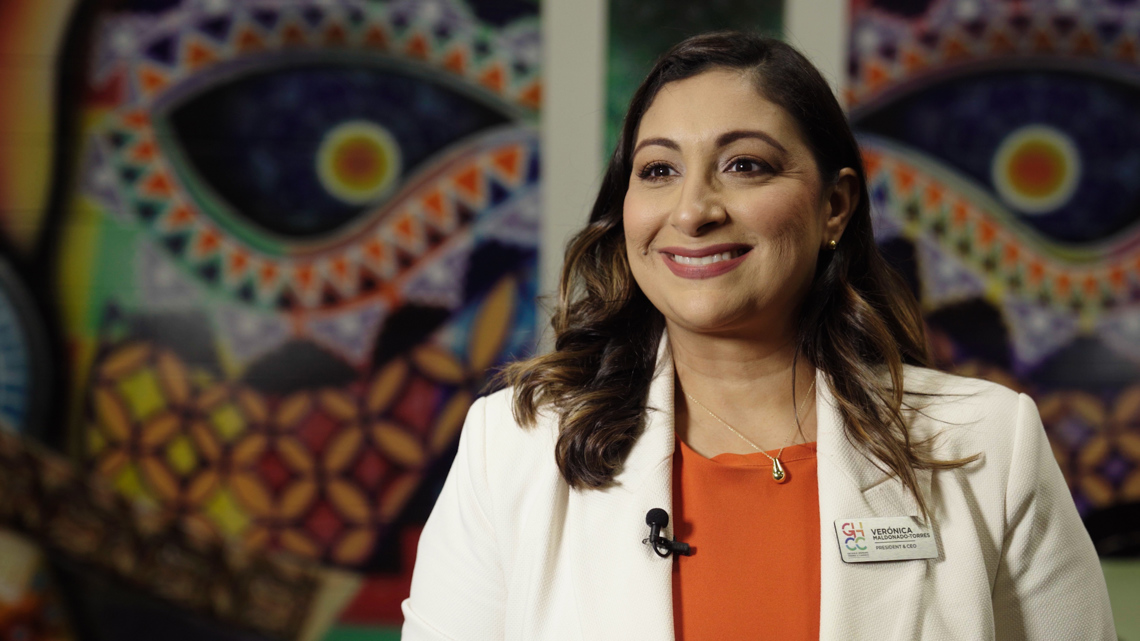
Last year, Georgia hit a milestone documenting that more than 1 million Latinos live in the state. Maldonado-Torres said that number is closer to 1.2, 1.3 million now.
The Atlanta Regional Commission released a report analyzing that the growth trajectory of the next 30 years looks like the state can expect another 1.2 million Latinos. Maldonado-Torres is of proud Colombian heritage and said as a Latina, she hopes other members of her community can feel empowered.
"My message to our Atlanta Latino community is to recognize what you do bring, the value and the worth that you bring to your local community, to your workforce, to your employees, your job, to your kids, and understand that the value that you bring," Maldonado-Torres said, "diverse, beautiful contributors and ready to extend work with everyone."
This story was written by Gabriella Nuñez.

